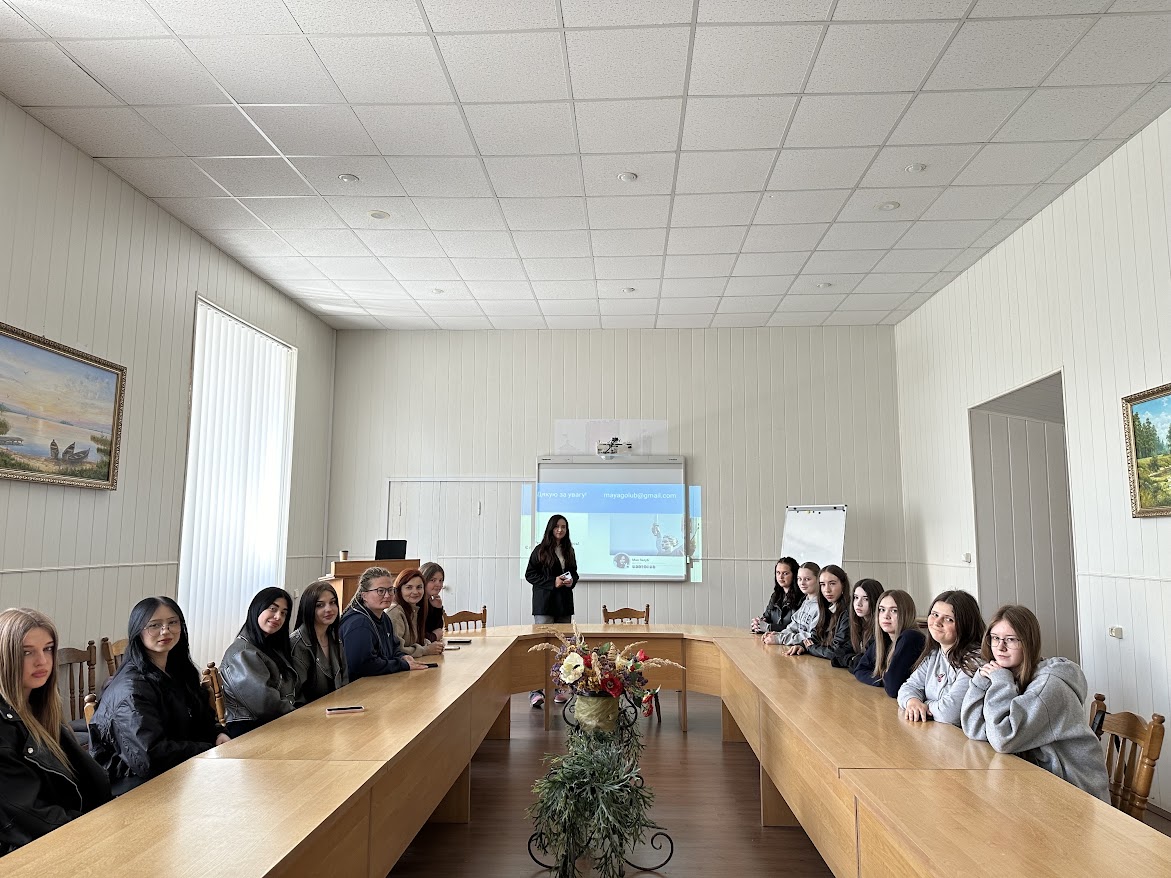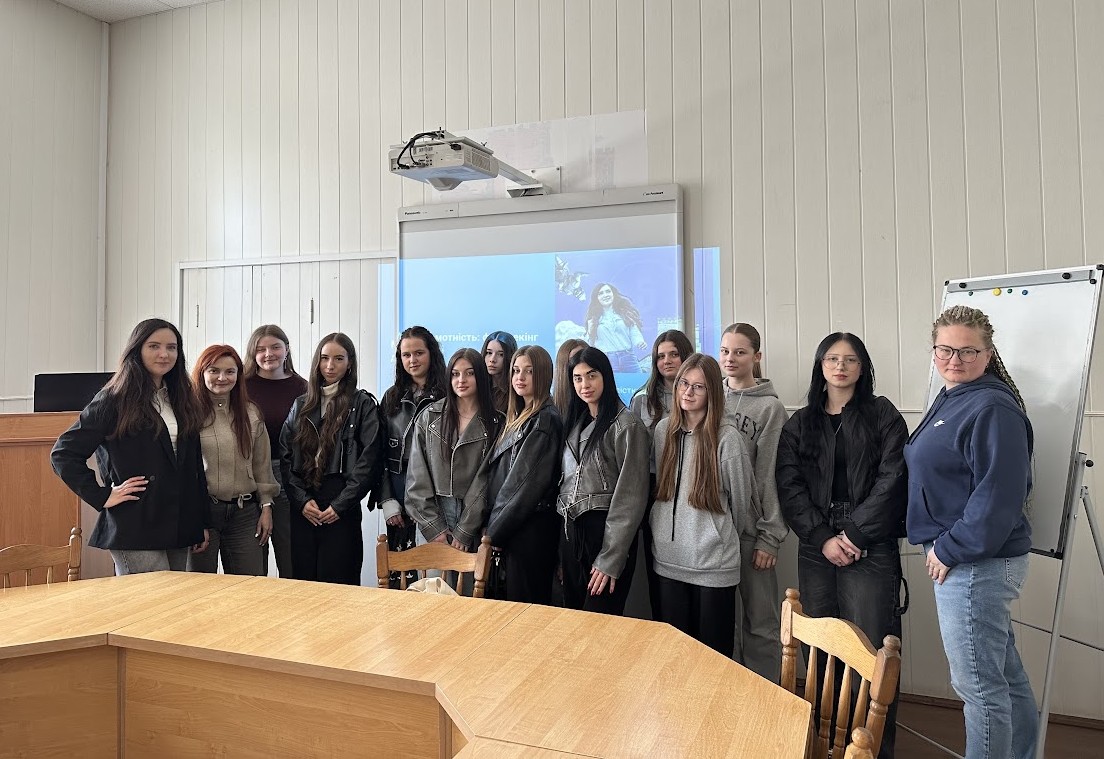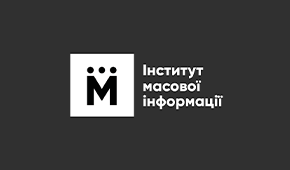Identifying disinformation and verifying photos: lifehacks from IMI representative Maya Holub
Detecting disinformation and manipulation and checking photos for authenticity: these are some life hacks shared by Maya Holub, the Institute of Mass Information representative in Volyn oblast, during a media literacy and fact-checking class at the Volyn Vocational College of the National University of Food Technologies on May 30.
In particular, Maya taught students to detect fake and manipulative news and to verify the authenticity of photos using Google search and the Hive Moderation tool, which detects AI-generated images. This requires no registration: you can simply upload the photo to the website. For instance, Google search allows you to easily find the photo's location by switching the focus to buildings or other objects.
Maya Holub also shared some life hacks that journalists use in their work when they need to verify information. She advised paying attention to whether the photos you are being sent for publishing have been edited. You can check images for Photoshop on Fotoforensics.

Photo provided by Olena Levychkina of the Lutsk Media Literacy Club
The expert said that an image's original source can be found on TinEye: you need to upload a photo there and click “search”. Next, you need to carefully look at all the publication dates and pay attention to the earliest news featuring this photo. This way you can identify the original source of information.
Maya Holub also advised students to stick to reputable Ukrainian and Volyn media for news by using the IMI's High Quality List and the map of recommended media outlets.
Moreover, the IMI representative advised them to analyze what they read or see in photos or videos before sharing information. One question: “Is this really true?” will help realize that the information warrants another check. One should always check the original source as well, because this matters, too.
Maya Holub cited the Polish book “Biblia dziennikarstwa” (“Bible of Journalism”), which says: “Not checking information is like jumping into a pool without making sure there is water.” This means that not checking information is dangerous and harmful, she explained.
The expert also discussed the concept of whataboutism. This tactic is often used to disrupt the discussion of an issue and switch focus to another. For example, by replacing the subject of the Russo–Ukrainian with famine in Africa or something else.

Photo provided by Olena Levychkina of the Lutsk Media Literacy Club
The class participants played “Which face is real?” to practice and test their intuition in detecting whether the photo they are presented with depicts a real person or has been generated by AI.
The IMI representative discussed not just the benefits, but also the risks of using ChatGPT.
“ChatGPT can provide inaccurate information or make errors. So you should double-check everything that ChatGPT says in respondse to your queries. ChatGPT once told me that 2025 has not yet come and made a calculation error. You should not rely on what ChatGPT writes completely; it is important to check and analyze the information you receive. You should also avoid sharing very personal and sensitive information with ChatGPT and delete your search queries,” she said.
Maya Holub advised to be mindful of digital security when using ChatGPT, because someone may try to access your account. It is better to use an email address that no one knows about to sign up: this will prevent someone from trying to access the account.
In May 2025, Maya Holub, journalist and Institute of Mass Information representative in Volyn oblast, received several email notifications about attempts to reset the password to her ChatGPT account by unknown hackers.
Maya Holub has over 10 years of experience in journalism. Starting in 2012, she worked for two years at the Rivne investigative journalism agency Chetverta Vlada and then worked with Corrupt.Ua.org. She has been the Institute of Mass Information representative in Volyn oblast since 2017. In 2023, Maya completed an online course for coaches by the Deutsche Welle Akademie.
Help us be even more cool!

